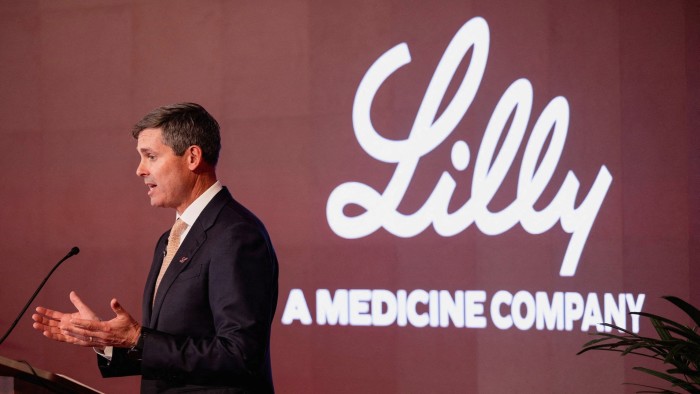Unlock the Editor’s Digest for free
Roula Khalaf, Editor of the FT, selects her favourite stories in this weekly newsletter.
Big drugmakers say Britain pays too little for its drugs. They would, of course: the country has cleverly exploited its ability to negotiate with a united front. But, courtesy of President Trump’s onslaught on pharma companies, the UK’s good deal is soon likely to come to an end.
Over the past few weeks, Merck has scrapped a £1bn research centre in London. AstraZeneca paused a £200mn investment in Cambridge, following an earlier decision to ditch a planned £450mn vaccine plant. Eli Lilly boss Dave Ricks has branded the UK the worst country in Europe for low drug prices, and says the country will miss out on investments and medicines if it doesn’t mend its ways.
It is true that the UK pays relatively little for its medicines. While negotiated prices are confidential, EY estimates that spending on innovative drugs amounts to less than 0.3 per cent of GDP, just over a third of US levels.
The process is convoluted, but part of it hinges on the “cost-effectiveness threshold” set by the National Institute for Healthcare and Excellence. This says that an extra year of healthy life for a patient is typically worth at most £30,000. Should overall drug sales exceed forecasts, the NHS claws back some of the drugmaker’s revenue the next year — a share that has risen to almost 23 per cent.

Still, Big Pharma’s case looks weak. Much of the cost of medicines is research and development, which they would be doing anyway in order to sell their drugs in bigger markets like the US. Even lower-priced sales are therefore worth pursuing. Threats to build labs elsewhere are illogical: drugmakers should want to be where skills and incentives are greatest.
The problem, though, is that the UK’s good deal is now causing problems elsewhere. Trump wants pharma companies to offer publicly funded US insurers the same price awarded to the “most favoured nation”. They have until Monday to do so. And a new 100 per cent tariff on branded pharmaceuticals for companies that are not building a plant in America suggests Trump means business.
In this light, drugmakers have reason to take a tough stance against UK negotiators. Not only are they under pressure to set a sustainable benchmark, but they’ll also be seeking to replace profit that will be lost from lower prices in the US. That makes their threats look like more than grandstanding. For the UK, staying well is about to get more expensive.
This article has been amended to correct the figure for AstraZeneca’s scrapped investment in a UK vaccine plant

